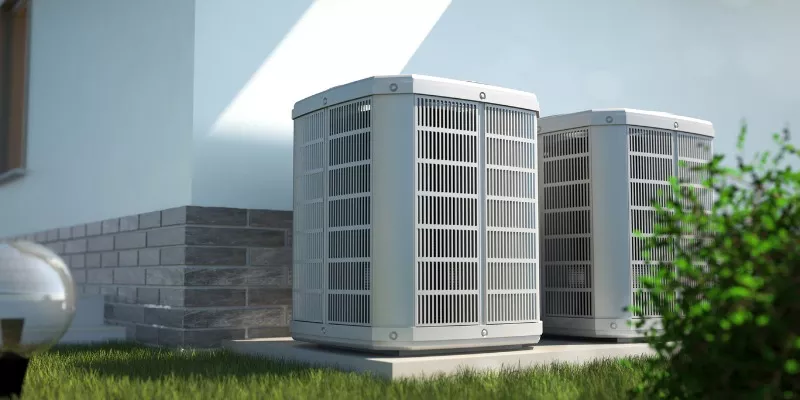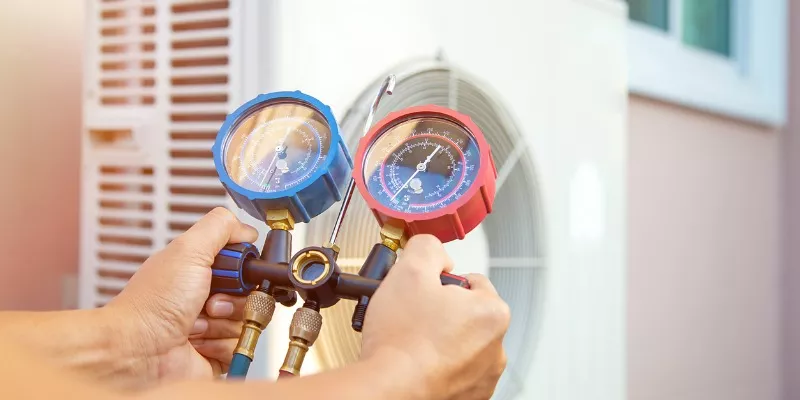
A heat pump is an efficient device that’s used to transfer heat from one place to another. Like an air conditioner, a heat pump can move heat out of your home when you want it cooler inside and it has the added benefit of being able to move heat into the house when you want it warmer. They can also replace air conditioners outright in the summer. Whether you heat your home with a natural gas or propane furnace, adding a heat pump is a great way of lowering your carbon footprint and you may save money when you use your heat pump to heat during the spring and fall, instead of your furnace. If you’re interested in a heat pump, you may be curious about how they are installed. Here’s what you should consider.
Before the Heat Pump is Installed
Before you purchase a heat pump there are a few things that you should consider:
- House efficiency: Upgrading your insulation and fixing air leaks is a wise decision prior to installing a heat pump. The more efficient your home’s envelope is, the longer into the winter you will be able to use your heat pump instead of your furnace.
- Heat pump size: Make sure that you have worked with a qualified HVAC professional to select a heat pump that is properly sized for your home to ensure it performs at optimal efficiency. The size of the heat pump will be limited to the amount of air that your existing duct system can effectively move.
- Type of heat pump: There are two main kinds of heat pumps to consider: ground source and air source. Air source heat pumps use the air outside of your home as the source of heat and destination for heat in the summer. They are simpler to install. Ground source heat pumps (also called geothermal) need piping installed into the ground. These ground loops can be installed in vertical loops, or horizontal loops if there is a lot of available lands. The major advantage of ground source heat pumps is that they are very efficient all year round because the temperature of the ground is fairly constant. If you are interested in the most efficient heating system possible you should definitely consider a geothermal system.
Interested in learning more about how to install heat pumps in your home? Look no further. Our team at ClimateCare can help you. Contact us today!

How Heat Pumps are Installed
Just like central air systems, air-source heat pumps have indoor and outdoor units. Your HVAC professional will show you where each unit will go and explain what will be necessary to connect the units and how to connect the heat pump to your home’s existing heating and cooling systems. The best practice is typically to install the outdoor unit higher than the level of the snow, which can be a challenge in our climate because you can never be certain of how much snowfall will occur in any given year.
Unlike air-source heat pumps, ground-source heat pumps do not have a visible unit outside your home. Instead, the ground loops are buried underground where they extract heat from the ground in the winter and store the heat rejected from your house into the ground in the summer. Depending on how much land you have and what the topography and landscaping are, you may need to install vertical loops or may be able to install horizontal loops. Your qualified geothermal installer will do a site evaluation and advise you of your options.
During the installation process, the heat pump will need to be connected to your home’s electrical system for power and the air duct system to disperse its warm or cool air. Once the installation is complete, your HVAC professional will test and commission the heat pump and make sure it is working properly.
Then, they should also explain to you what kind of maintenance your heat pump will need moving forward so that it continues to perform optimally and efficiently.
If you have any questions or would like to learn more about heat pumps in Canada and their installation process and their advantages, please contact the HVAC professionals at ClimateCare today. We are happy to help!




